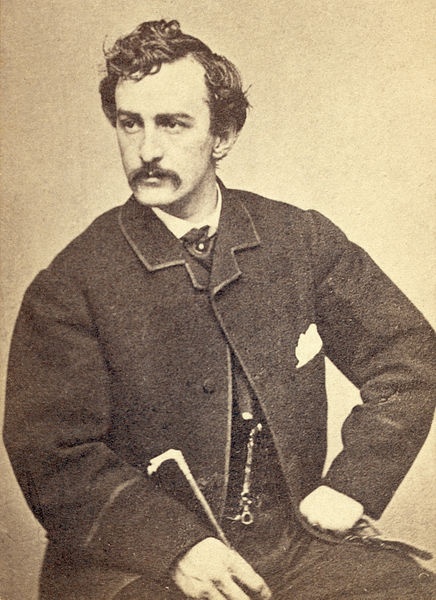John Wilkes Booth: Presidential assassin, fracking pioneer

He's infamous as the assassin of Abraham Lincoln, but before John Wilkes Booth shot the president, the Confederate sympathizer from Maryland was "shooting" oil wells -- a technique that used explosives to boost oil well production and foreshadowed modern fracking.
It was 150 years ago this month, in January 1864, that Booth -- a financially successful actor at age 25 -- began shopping for property in the oilfields of northwestern Pennsylvania. The nation's first oil rush was on, and Booth wanted in. So he and two friends formed the Dramatic Oil Co. and bought a 3.5-acre oil lease on a farm in Venango County, Pa.
The company hired an experienced driller and got to work that summer, the American Oil & Gas Historical Society (AOGHS) reports:
The well proved costly and difficult, but [at] a depth of 1,900 feet, to the partners' delight, it came in as a producer. Although the price of crude oil often fluctuated greatly, that summer it was selling for about $16 to $20 a barrel.
When the well began experiencing production problems, Booth and his business associates decided to "shoot" it. This was a technique that involved detonating a large amount of gunpowder deep inside the well -- a non-hydraulic form of fracturing rock.
But their efforts failed. The son of one of Booth's partners sons reported that "the blast utterly ruined the hole and the well never yielded another drop."
Booth reportedly lost over $6,000 on the well, the equivalent of about $90,000 today. He left the Pennsylvania oilfields and returned to Maryland, where he and friends began hatching their plot against Lincoln.
Booth shot the president on April 12, 1865. Less than two weeks later -- the day before Booth was killed by the Union cavalry -- Col. Edward A.L. Roberts of New Jersey, a Union veteran and explosives expert, received his first patent for a literally groundbreaking invention: the Roberts Petroleum Torpedo. It took well shooting to a whole new level.
Reportedly inspired by the sight of Confederate artillery rounds exploding in a canal during the Battle of Fredericksburg, Roberts came up with the idea of placing gunpowder in an iron case, lowering it into an oil well, and detonating it. The borehole was filled with water to concentrate the blast and more effectively fracture the surrounding rock and release the oil.
Robert's invention was a business success, AOGHS reports:
The technique had an immediate impact -- production from some wells increased 1,200 percent within a week of being shot -- and the Roberts Petroleum Torpedo Company flourished.
Roberts died a wealthy man in 1881. His heirs sold the company to its workers, who continued as the Independent Explosives Company.
In the decades that followed, the drilling industry switched from using gunpowder in petroleum torpedoes to nitroglycerin, which is a more powerful explosive but also dangerously sensitive. The nitroglycerin was known as "soup," and the men who deployed it "soup handlers." Check out this 1938 newsreel about soup handlers in the oilfields of Texas:
In 1949, the drilling industry underwent another technological revolution after Halliburton and Stanolind, the exploration and production arm of the Indiana Standard oil company, successfully performed the first commercial hydraulic fracturing of oil wells, using pressurized liquid instead of explosives to fracture rock and boost production.
Since then, over 1 million wells have been fracked. The practice is becoming more common, with the industry estimating that fracking will be required in up to 80 percent of natural gas wells drilled over the next decade on both sides of the Mason-Dixon Line.
And the area where Booth shot his oil well 150 years ago? It is, once again, at the center of a drilling boom.
Tags
Sue Sturgis
Sue is the former editorial director of Facing South and the Institute for Southern Studies.
